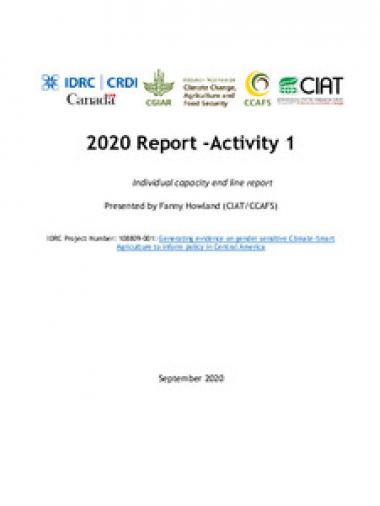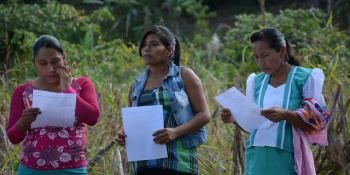2020 Report Activity 1 - Individual Capacity End Line Report

October 2018, a baseline individual capacity evaluation was undertaken at local and national levels in Guatemala. Its objective was to map out the initial status of CSA and gender knowledge, skills, attitude, and related practices in the three types of actors targeted by the project (farmers, local and national level stakeholders) in order to compare it with an end line exercise and assess the contribution of the project to the observed changes.
Following the development of a detailed project Theory of Change (see full Activity report) to identify the expected changes and outcomes, specific questionnaires were designed for each of the three target groups (see Table 1 and 2).
In the case of farmers, the questionnaire focused on assessing their level of knowledge on specific CSA practices and their potential impacts on agricultural production but also on climate vulnerability and gender dimensions (i.e access to resources, labor, and decision making). With local actors additional questions aimed at assessing their understanding of a Gender-sensitive approach, their level of institutional mainstreaming/implementation and monitoring, their perceived individual capacities and needs. Finally, with national-level stakeholders, the questions addressed individual perceptions on the importance given to Gender in the political and agricultural sector agenda, their level of knowledge and technical expertise, and their capacity to support gender mainstreaming into their institutional work.
Citación
Howland F. 2020. Report Activity 1 - Individual Capacity End Line Report. CGIAR Research Program on Climate Change, Agriculture and Food Security (CCAFS).
